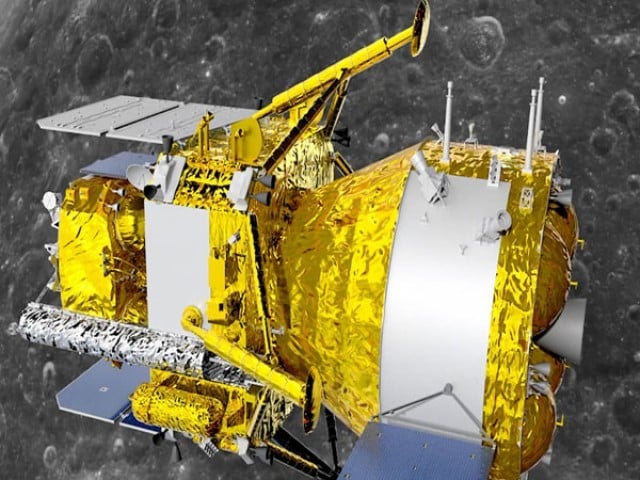Pakistani satellite launched into lunar orbit – Photo: CTGN
Islamabad: Along with China’s space mission ‘Cheng E6’, Pakistan’s satellite ‘Icube Qamar’ has left to orbit the moon, which will reach the moon’s orbit in 5 days and thus Pakistan is the sixth in the world to send a satellite into the moon’s orbit. The country has become
The satellite mission took off from the Wencheng Space Center in Henan, China today at 2:27 PM. Emotional scenes were seen at Sparco on the departure of the mission. The Sparco Command and Control Center erupted with applause. Bad, Pakistan Army shouted slogans of Zindabad.
ICube Qamar, designed and developed by the Institute of Space Technology in collaboration with Shanghai University of China and Pakistan National Space Agency ‘SPARCO’, is the world’s first mission to retrieve samples from the other side of the Moon.
Pakistan’s satellite ‘iCube Qamar’ equipped with two optical cameras used to take pictures of the lunar surface, after successfully passing through the testing and qualification phase, ‘iCube Q’ was launched by China’s ‘Cheng 6’ mission. is attached to
Institute of Space Technology Member Core Committee Dr Khurram Khurshid said that Pakistan’s satellite mission will orbit around the moon for 3 to 6 months.
He said that with the help of satellites, various pictures of the moon’s surface will be taken, after which Pakistan will have its own satellite pictures of the moon available for research.
Dr. Khurram Khurshid said that the satellite belongs to Pakistan, we will use its data, but since it is being sent to the moon using China’s network, Chinese scientists can also use this data.
He said that this satellite has been developed in a short period of 2 years.
Dr Khurram Khurshid said that it would not be fair to compare Pakistan’s mission with India’s Chandrayaan because Chandrayaan was the bigger mission, which landed on the Moon, but the iCube Qamar, a small satellite, will orbit the Moon.
He said that this is initially a small project to pave the way for bigger missions in the future.
Institute of Space Technology Member Core Committee Dr. Rehan said that this is the first mission in the world that will get samples from the other side of the moon, this mission will last for 53 days.
He said the mission would involve orbiting the moon, taking off and returning while it would attempt to carry up to 2 kilograms of material.
IST officials said that the mission will provide important information about the Moon’s weather, Earth and magnetic field.
He said that in 2022, the Chinese National Space Agency through the Asia Pacific Space Corporation Organization (APSCO) provided a unique opportunity for member countries to reach the lunar orbit for free.
The member countries had sent their plans on the proposal of Epsco, the member countries of Epsco include Pakistan, Bangladesh, China, Iran, Peru, South Korea, Thailand and Turkey.
Pakistan’s Institute of Space Technology had also submitted a proposed project, out of 8 countries, only Pakistan’s project was accepted, after two years of hard work, the satellite ‘iCube Qamar’ could be completed.
(function(d, s, id){
var js, fjs = d.getElementsByTagName(s)[0];
if (d.getElementById(id)) {return;}
js = d.createElement(s); js.id = id;
js.src = “//connect.facebook.net/en_US/sdk.js#xfbml=1&version=v2.3&appId=770767426360150”;
fjs.parentNode.insertBefore(js, fjs);
}(document, ‘script’, ‘facebook-jssdk’));
(function(d, s, id) {
var js, fjs = d.getElementsByTagName(s)[0];
if (d.getElementById(id)) return;
js = d.createElement(s); js.id = id;
js.src = “//connect.facebook.net/en_GB/sdk.js#xfbml=1&version=v2.7”;
fjs.parentNode.insertBefore(js, fjs);
}(document, ‘script’, ‘facebook-jssdk’));


